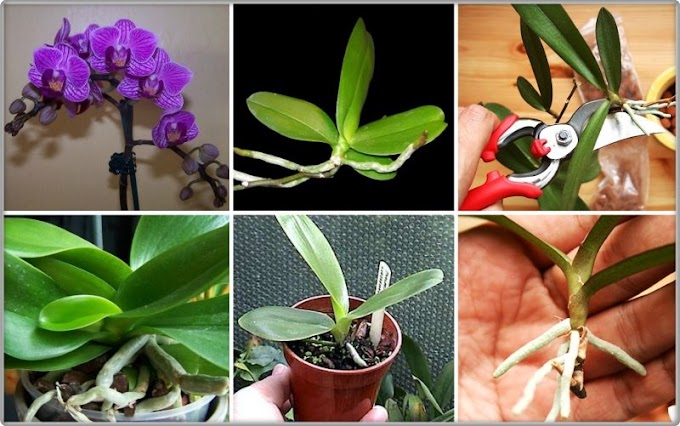Hatiora salicornioides is a slender, erect, arching or somewhat pendent, bushy, cactus with unique jointed stems and many small yellow-orange flowers. It can be either epiphytic or terrestrial, but is commonly grown as a foliage plant. It has the common name of 'Drunkard's Dream' from the resemblance of the stem sections to bottles of beer. The plant is made of many-branched stems and reaches 30-60(-100) cm in height and spread.
Stems are joined, becoming woody, very copiously branched. Branchlets (stem-segments) of strictly determinate growth, tiny, pale green to deep green, leaf-less and spineless (1,5-)2-3(-5) cm long, 3-4 mm in diameter. Flowers is always terminal at tips of younger stem segments, small, bell-shaped orange yellow or light salmon, 1-2 cm long and in diameter.
How to Grow and Care
Light: This tropical cacti likes bright partial light only. It should never be exposed to full sunlight or midday sunlight.
Water: In summer, water with warm water every 3-5 days. The soil between watering should be slightly dry. The plant is harmful as the complete drying of the earth coma, and stagnation of moisture. When watering the water should leave the drainage hole, but it must be immediately poured from the pan. From October to December watering rare – 1 time per week.
Temperature: Hatioras prefers spring, summer, and fall temperatures around 75-80 °F (24-27 °C). Winter temperatures should be between 45-65 °F (7-18 °C) only.
Soil: Due to its natural growing environment being on rocks or trees, this cacti requires rough soil to grow well. A 1:1 mixture of potting soil to pumice, tree bark, or perlite is required. Pumice is preferred.
Fertilizer: Hatioras prefers fertilization every 14 days. Use a balanced 10-10-10 fertilizer, and dilute to half strength. Do not fertilize during resting period.
Propagation
Propagating drunkard’s dream is easy using cuttings. Take the cuttings toward the end of spring. After taking the cuttings, allow them to dry overnight. Stick them in damp soil and the roots should appear within four to six weeks.
- ALSO READ some more info How To Grow and Care Dancing Bones Cactus
Stems are joined, becoming woody, very copiously branched. Branchlets (stem-segments) of strictly determinate growth, tiny, pale green to deep green, leaf-less and spineless (1,5-)2-3(-5) cm long, 3-4 mm in diameter. Flowers is always terminal at tips of younger stem segments, small, bell-shaped orange yellow or light salmon, 1-2 cm long and in diameter.
- Scientific Name: Hatiora salicornioides (Haw.) Britton & Rose
- Common Names: Dancing bones, Spice Cactus, Bottle Cactus, Drunkard's Dream
- Synonyms: Rhipsalis salicornioides (basionym)
- Family: Cactaceae
- Subfamily: Cactoideae
- Tribe: Rhipsalideae
- Genus: Hatiora
 |
| source pic: seedlingsandcuttings.eu |
How to Grow and Care
Light: This tropical cacti likes bright partial light only. It should never be exposed to full sunlight or midday sunlight.
Water: In summer, water with warm water every 3-5 days. The soil between watering should be slightly dry. The plant is harmful as the complete drying of the earth coma, and stagnation of moisture. When watering the water should leave the drainage hole, but it must be immediately poured from the pan. From October to December watering rare – 1 time per week.
Temperature: Hatioras prefers spring, summer, and fall temperatures around 75-80 °F (24-27 °C). Winter temperatures should be between 45-65 °F (7-18 °C) only.
Soil: Due to its natural growing environment being on rocks or trees, this cacti requires rough soil to grow well. A 1:1 mixture of potting soil to pumice, tree bark, or perlite is required. Pumice is preferred.
Fertilizer: Hatioras prefers fertilization every 14 days. Use a balanced 10-10-10 fertilizer, and dilute to half strength. Do not fertilize during resting period.
Propagation
Propagating drunkard’s dream is easy using cuttings. Take the cuttings toward the end of spring. After taking the cuttings, allow them to dry overnight. Stick them in damp soil and the roots should appear within four to six weeks.
- ALSO READ some more info How To Grow and Care Dancing Bones Cactus
 |
| source pic: thegreenarea.com |



